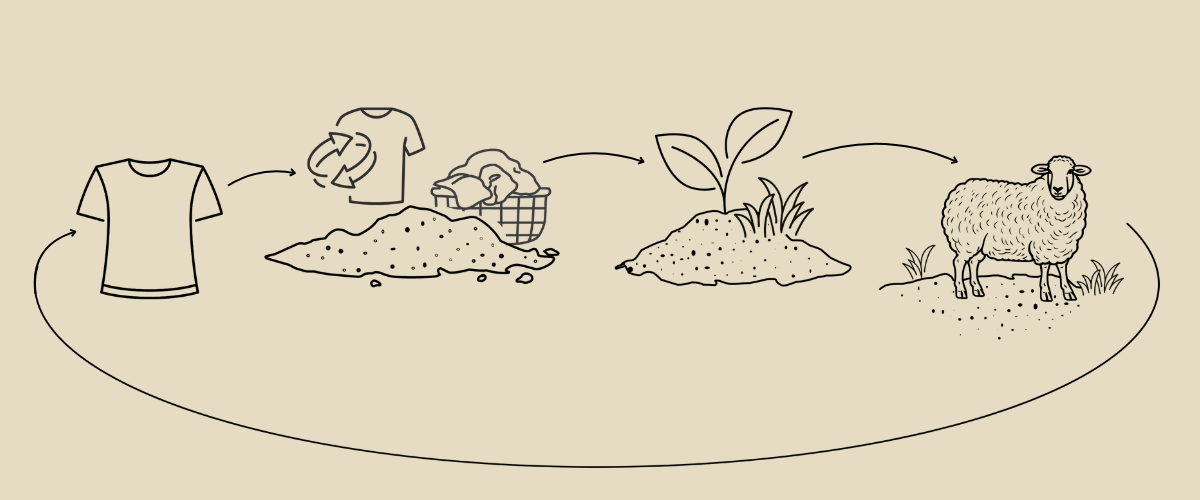We can redesign our textile systems for healthier, compostable, materials that replenish the very ecosystems that they come from.
Read MoreCategory: Climate Change

Investing in a Regenerative Fiber Future: A Conversation with Sacred Futures’ Charity May
Charity May discusses how wisely targeted investing combined with “patient capital” can lead us toward her ideal fiber future.
Read More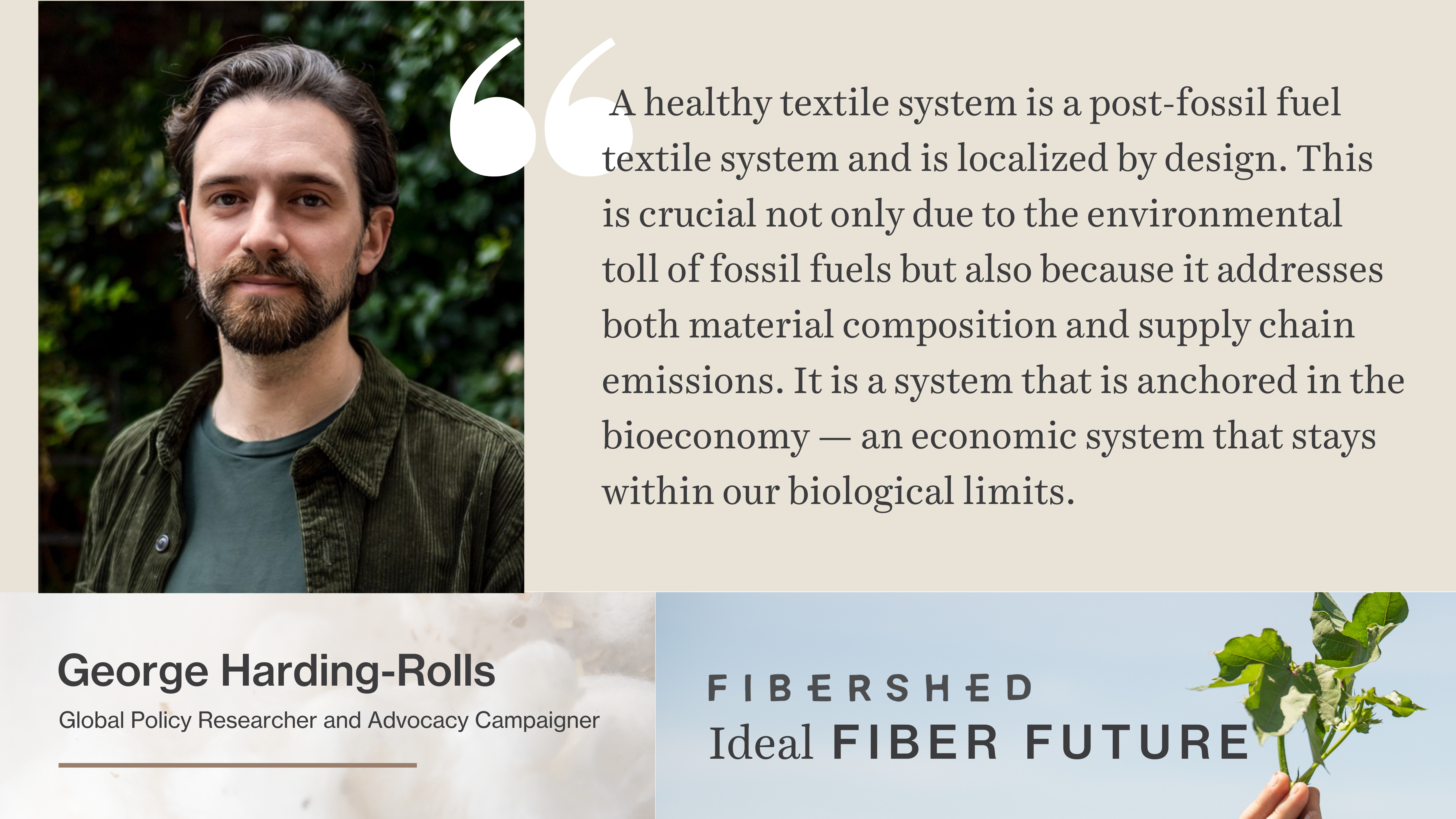
Post-Fossil Fuel Fashion: Q&A with George Harding-Rolls, Global Policy Researcher and Advocacy Campaigner
In this interview, George Harding-Rolls shares how consumers and brands can work together to build a fashion system that aligns with our ecological realities and benefits everyone involved.
Read More
MATE the Label Launches a Climate Beneficial Collection Made to Last
By supporting farming practices for long-term good, MATE the Label and its partners in the California Cotton & Climate Coalition are advancing a planet-friendly fabrics model for fashion brands.
Read More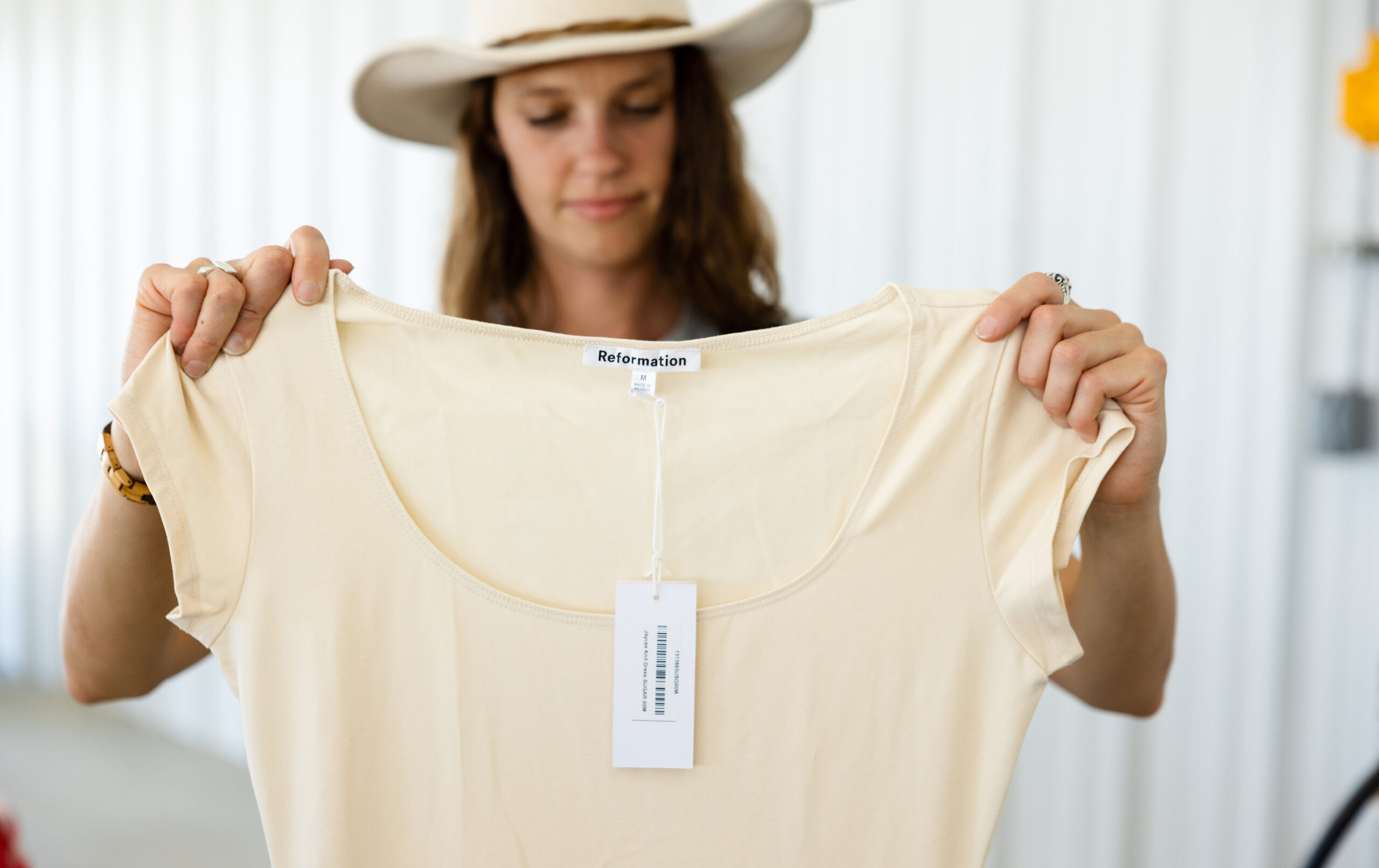
Cultivating Change: Reformation’s New Climate Beneficial™️ Cotton Line
Reformation is partnering with the California Cotton & Climate Coalition to purchase and manufacture garments using Climate Beneficial™️ Cotton, highlighting the brand’s commitment to sustainable fashion.
Read More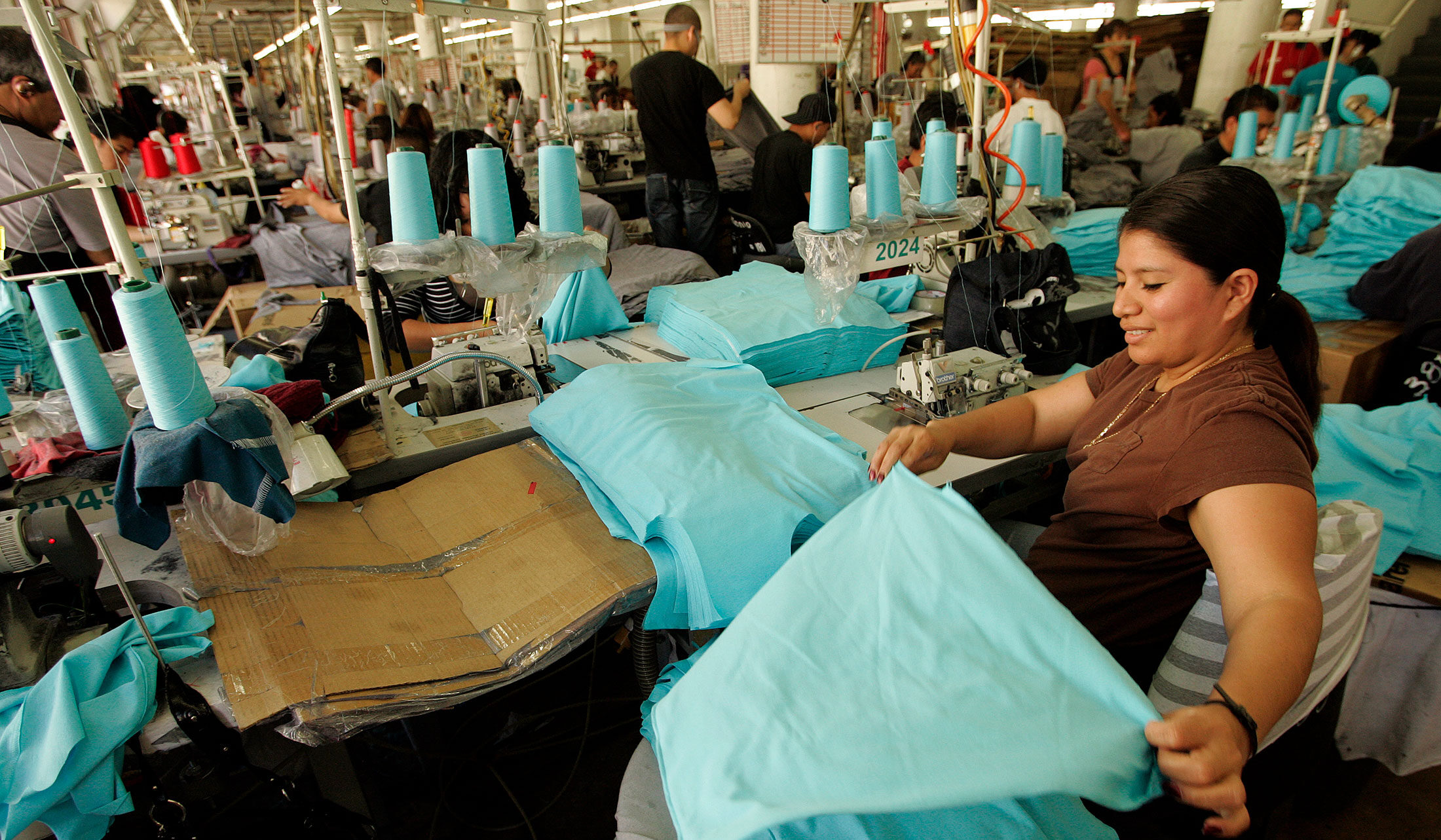
Textile and Fiber Policy 101: Influential New Legislation You Should Be Paying Attention To
Many regulatory systems shape our local fibersheds. Local, state, national (even international) policies and laws play an important role in influencing healthy and vibrant textile, fashion, and fiber systems. We put together a quick guide to help you understand some of the most influential new policies under consideration and what they could mean for transforming our material culture.
Read More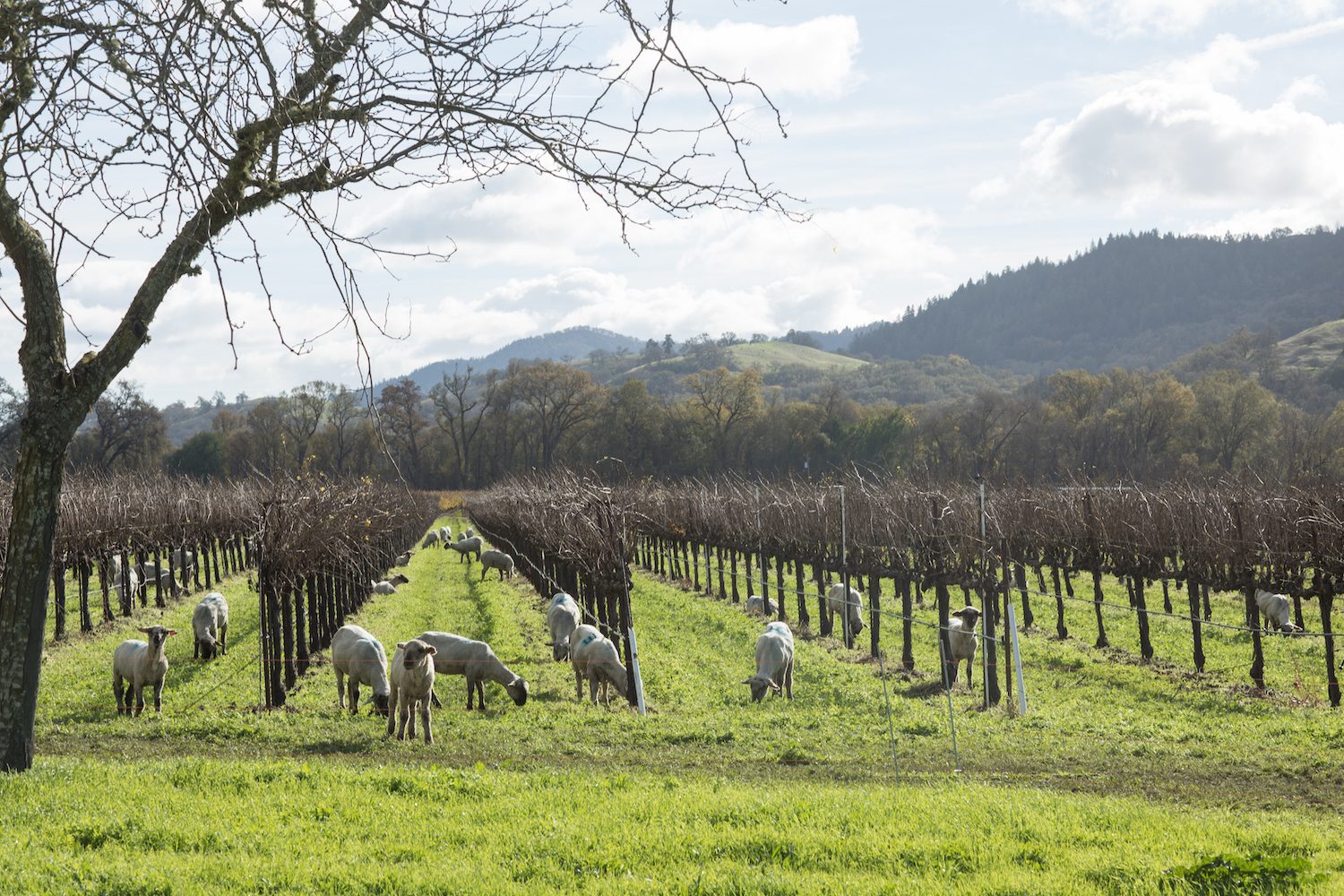
Revitalizing Ecosystems and Bottom Lines: Innovative Approaches Aim to Sustain Prescribed Grazing Operations
Targeted prescribed grazing can provide enormous ecological and social value. Fibershed and partners are developing and investing in innovative approaches to economically support the longevity of this practice.
Read More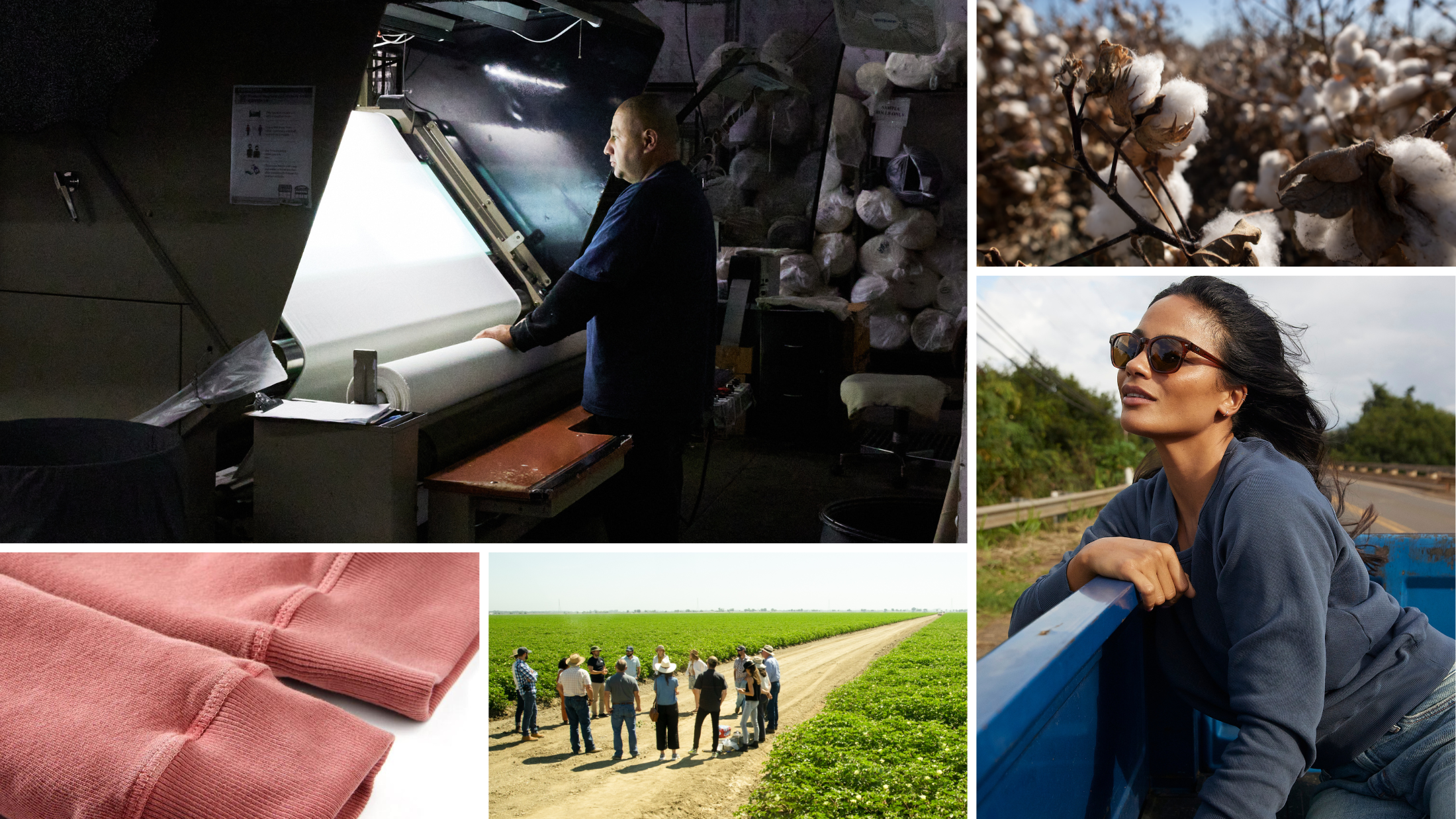
Celebrating Working Landscapes With Outerknown’s California Series
California-based company Outerknown — a founding member of the California Cotton & Climate Coalition (C4) — has launched a new collection that celebrates California farmers and working landscapes. The California Series is made with 100% Climate Beneficial™ cotton, grown and sewn entirely in the heart of California’s Central Valley. This line represents a first-of-its-kind for Outerknown and uplifts a regional community of farmers, designers, and producers committed to closely collaborating through our fiber systems to leverage the soil’s ability to fight climate change.
Read More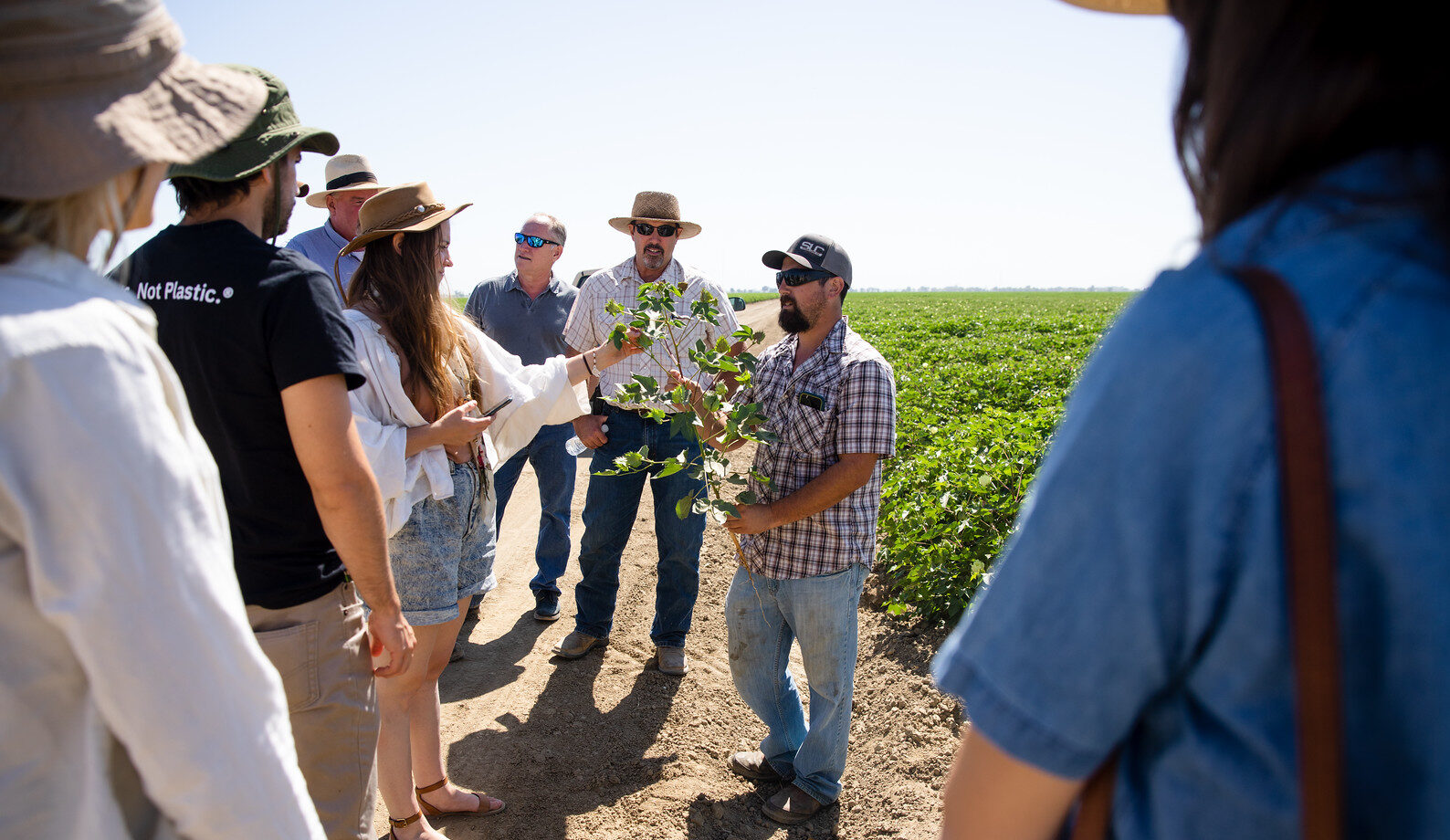
Reversing Supply: Farming Textiles For Soil Health
The California Cotton & Climate Coalition is working to restore our connection with our working landscapes by developing a model to lift up regionally produced textiles that prioritize soil health, support rural economies, and mitigate climate change in California’s Central Valley.
Read More
Fibershed’s Community: ‘What Fibershed Means to Me’
The Fibershed community responds to the question “What does Fibershed mean to you?”
Read More
